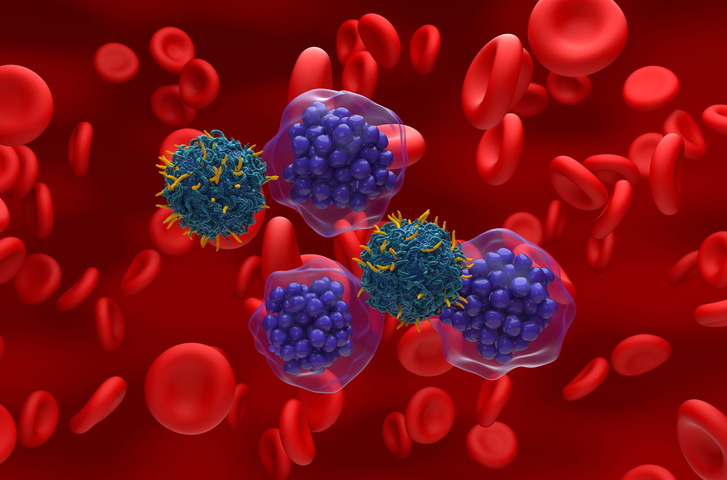
According to recent research published in Blood, highly complex karyotypes (≥5 chromosomal aberrations [CAs], hCKTs) and translocations were found to be independent prognostic factors for inferior progression-free survival (PFS) in patients with TP53-intact chronic lymphocytic leukemia (CLL) treated with venetoclax-based therapies.
Moritz Fürstenau, MD, along with the German CLL Study Group, conducted a prospective analysis of karyotype complexity in patients with CLL. The investigators evaluated the impact of complex karyotypes (defined as having ≥3 CA, CKTs) and hCKTs, as well as specific aberrations in previously untreated patients without TP53 abnormalities. These patients were undergoing either chemoimmunotherapy (CIT) or time-limited venetoclax-based therapies as part of the phase III GAIA/CLL13 trial.
Of the 926 patients included in the study, 895 (96.7%) had karyotype analyses available, 153 (17%) of whom had CKT, while and 43 (5%) had hCKT.
A subanalysis of patients undergoing CIT found that CKT was associated with shorter PFS (hazard ratio [HR], 2.58; 95% CI, 1.54-4.32; P<.001) and overall survival (HR, 3.25; 95% CI, 1.03-10.26; P=.044).
Following a multivariable analysis of patients treated with venetoclax-based combinations hCKTs (HR, 1.96; 95% CI, 1.03-3.72; P=.041) as well as the presence of unbalanced and/or balanced translocations were independently associated with shorter PFS; however, CKTs were not identified as independent adverse PFS predictors.
“This analysis establishes highly complex karyotypes and translocations as adverse prognostic factors in the context of venetoclax-based combination treatments,” the investigators wrote regarding the results.
CIT was associated with the acquisition of additional CAs over time (mean CAs, 2.0-3.4 from baseline to CLL progression), potentially contributing to disease progression. In contrast, venetoclax-based treatments showed karyotype stability (mean CAs, 2.0 [for both] from baseline to CLL progression).
The investigators concluded, “The findings of this study support the incorporation of karyotyping into the standard diagnostic workup of CLL, because it identifies patients at high risk of poor treatment outcomes and thereby improves prognostication.”
Reference
Fürstenau M, Thus YJ, Robrecht S, et al. High karyotypic complexity is an independent prognostic factor in patients with CLL treated with venetoclax combinations. Blood. 2023;142(5):446-459. doi:10.1182/blood.2023019634






 © 2025 Mashup Media, LLC, a Formedics Property. All Rights Reserved.
© 2025 Mashup Media, LLC, a Formedics Property. All Rights Reserved.